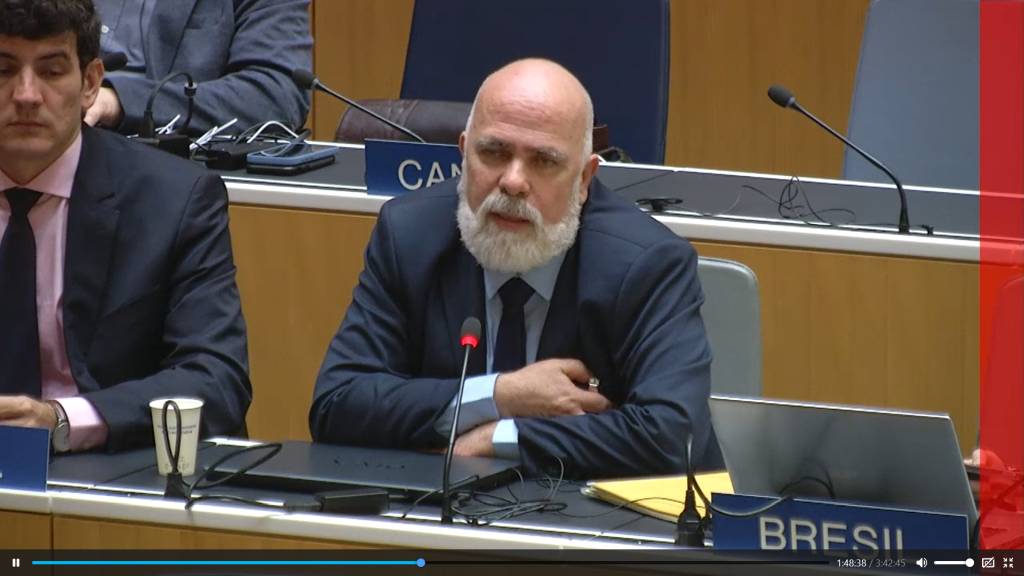Unexpected support for copyright
LATIN AMERICAN countries have long been at the forefront of demands for international law setting out exceptions to copyright - conditions under which your work can be used without permission, and often without payment. It has long struck the Freelance that their legislators and diplomats have a direct personal interest: while at university they will have been obliged to pay exorbitant sums to academic and - especially - legal publishers in the Global North for access to essential papers and documents.

The honourable representative of Brazil
Now the purveyors of so-called Artificial Intelligence - based in those same countries, plus China - are Hoovering up the academic, cultural and, indeed, journalistic output of their countries and trying to sell it back to them, rearranged by those machine-learning systems. A new neo-colonial oppressor is apparent.
Thus at the April meeting of the World Intellectual Property Organisation Standing Committee on Copyright and Related Rights (WIPO SCCR) in Geneva from 7 to 11 April the Latin American group called for a study into unfair licensing of authors' work - initially that of audiovisual authors such as scriptwriters, and performers. The African group supported the call.
On the final day of the Committee Brazil summed up:
Performers, music performers for example, during all the meetings we have had over the last few years, have asked for a discussion on the contractual practices in numerous countries... Brazil believes that in the digital environment today, the situation in respect of performers, creators, could be characterised as digital feudalism.
Performers work under contracts that are not at all transparent or fair, and are obliged to work in an environment which is similar to slavery. The small amounts of money that they receive do not at all correspond to what they are performing for the cultural industry.
Strong words.
The call is for the moment purely symbolic. A study is a long way from a legislative proposal. The United States said that it opposes one - the film industry would never stand for it. Since SCCR can take decisions only by unanimity, that alone blocks the proposal.
WIPO did begin a study of contractual practices in the 1970s: and the UK was then at the centre of moves to sabotage it, which succeeded.
The symbolism may, however, turn out to be important. The continuing call for international law on exceptions is also symbolic, for us, in that it is exceedingly unlikely that such a law would lead to exceptions that do not already exist in UK or EU law. The US and EU continue to block that too.
Mystery row?
It seems that the meeting concluded in a row behind closed doors. All we know so far is that the Chair's statement closing the meeting began at 01:37 on the morning of Saturday 12 April, when it was due at 15:00 on the Friday. We find no clue in the transcript of the half-hour early-morning session what the 10-hour row was about. In the past, such events have been the external signs of deep private dissension.
 The wheels of copyright diplomacy grind slow report part 1
The wheels of copyright diplomacy grind slow report part 1
![[Freelance]](../gif/fl3H.png)